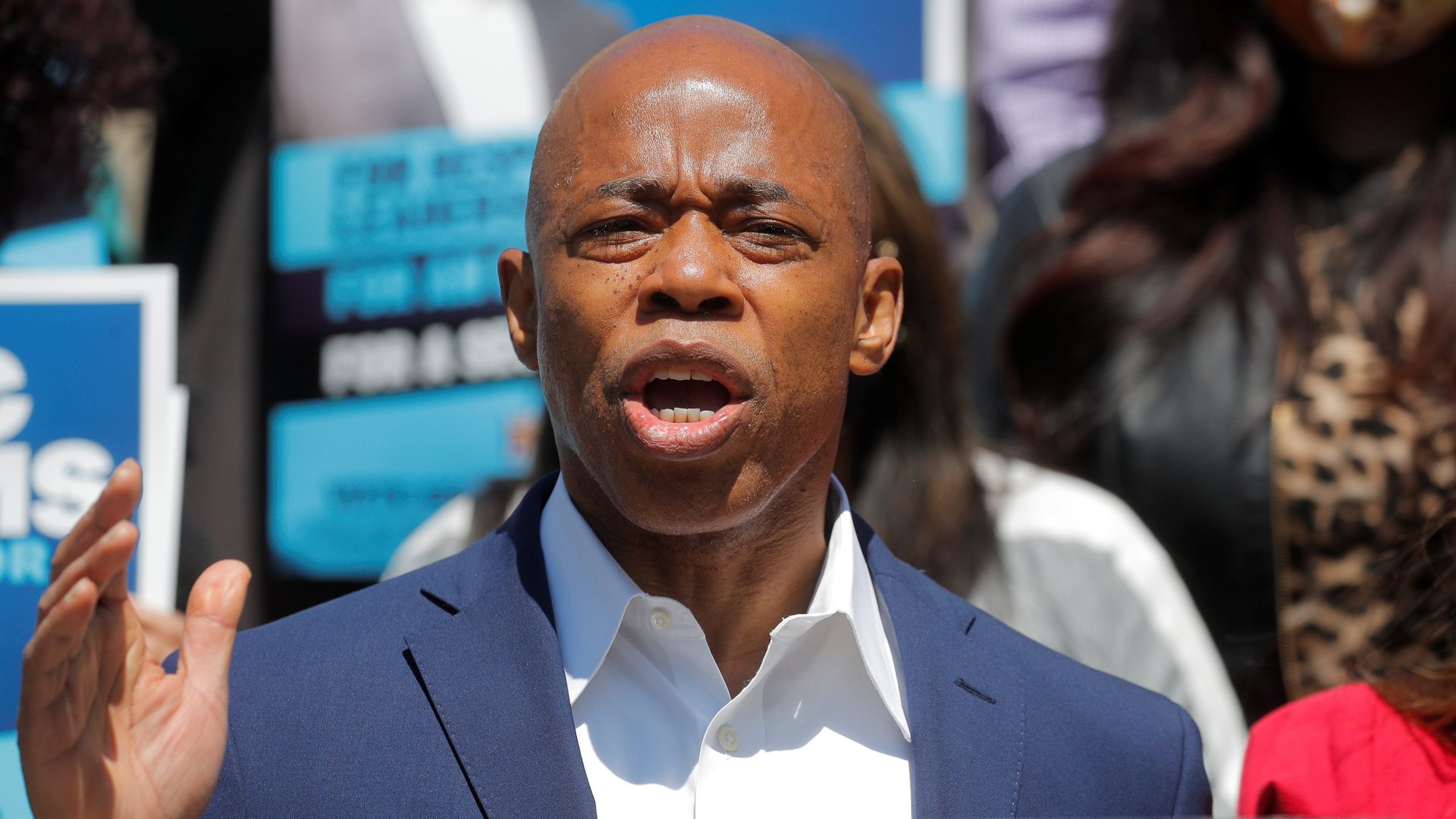Omicron isn’t stopping New York’s next mayor from his spiritual visit to Ghana
New York City’s new mayor Eric Adams is going ahead with a planned visit to Ghana this week, despite global concerns about the severity of the omicron variant of covid-19 and the Africa-focused travel bans it has—according to some health professionals and world leaders—prematurely triggered.


New York City’s new mayor Eric Adams is going ahead with a planned visit to Ghana this week, despite global concerns about the severity of the omicron variant of covid-19 and the Africa-focused travel bans it has—according to some health professionals and world leaders—prematurely triggered.
Adams will begin his first term as mayor on Jan. 1. But before then, he wants to spend a week with his family in the west African country, to pray and reflect on history, and will return to the US on Dec. 8.
“I made a promise to myself that I would visit Ghana following the 400-year anniversary of slavery in America and the election, to show how far we have come and remember how far we still must go,” Adams said, per the New York Post. That anniversary was in 2019, when Ghana’s tourism-boosting ‘Year of Return’ invited people of African descent to visit and live in the country.
Rationalizing travel to most of Africa
As news of omicron intensified over last weekend, Adams’s advisers reportedly considered shelving the trip on the logic that the new variant was identified in Africa. The US banned travel to and from Botswana (where the variant was first spotted), South Africa (whose scientists transparently alerted the world about the variant), and six other southern African countries that have not reported an omicron case as of today.
But Adams proceeds with the trip because of a rather simple reason: while omicron has been spotted in Europe, and has probably entered the US, it has not been reported in Ghana or elsewhere outside southern Africa (update: Ghana reported omicron cases on Dec. 1). America’s restriction on southern Africa is part of the criticized knee-jerk reaction to news of the variant, and until scientists advise otherwise, these bans should not be applied to other regions in the continent.
And so instead of generating poor optics, the second Black person elected as New York mayor invoked America’s first Black president’s first Ghana trip in 2009. “The people of Ghana, just like Obama when he ran for president, they’re waiting for me to go,” Adams said.
Africa expects vaccine equity
Adams may be overselling the importance of his trip a bit. It is a personal trip after all, and the most recent visit by a US government official to Africa was largely unremarkable, except for one comment on anti-police brutality. Ghanaians are more bothered about economic issues like taxes on online payments and disappointed about their government’s failure to deliver promised infrastructure projects.
Where covid-19 solidarity is concerned, African leaders are more interested in how wealthy countries can increase vaccination rates in the continent by not hoarding the majority of the vaccines produced, creating an inequity that puts the world at risk.
High-ranking judges in Malawi, and South Africa have called on rich countries to stop blocking attempts to waive patents to covid-19 vaccines, citing a human right to health. Ngozi Okonjo-Iweala, the World Trade Organization boss, said last week that waiver negotiations were “stuck.”
Until progress is made on that and other fronts, Africa’s fight against covid-19 remains tied to goodwill donations. China plans to help fill some of the existing gap by providing 1 billion vaccine doses to Africa, through a direct donation (600 million) and joint production with Chinese companies.
This story was updated to include Ghana’s report of first omicron cases.
Sign up to the Quartz Africa Weekly Brief here for news and analysis on African business, tech, and innovation in your inbox.